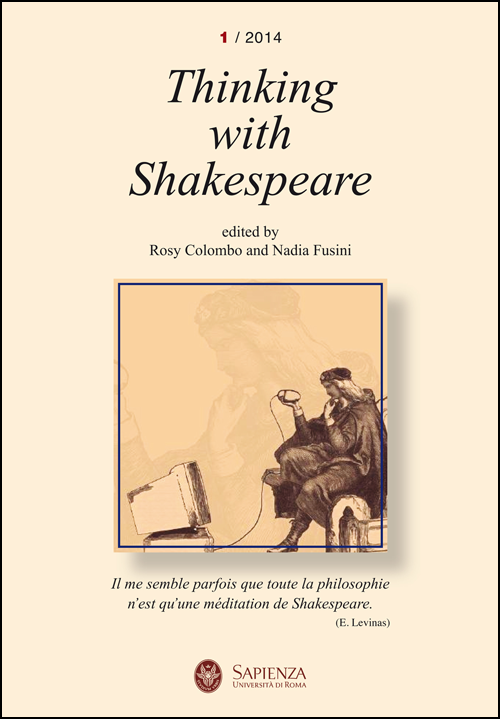Il testo dell'altro. Derrida dentro Shakespeare
Abstract
Aphorism Countertime is a short collection of thirty-nine aphorisms written by Jacques Derrida on Romeo and Juliet. In these aphorisms the French philosopher discusses the structure of the tragedy: Romeo and Juliet are, in a sense, the heroes of ‘countertime’ (contretemps), because they missed each other, but they also survived each other, through their name, by means of a studied effect of contretemps. The problem of the name represents the theoretical center of Derrida’s analysis: when Juliet addresses Romeo asking him to disown his father and his name, she seems to call him beyond his name, or, in other words, she seems to want Romeo’s death. He, his living self, living and singular desire, is not ‘Romeo’, but the separation, the aphorism of his name remains impossible. He dies without his name but he dies also because he has not been able to set himself free from his name, and this is the contradiction that leads the two lovers of Verona to their death. Jacques Derrida therefore wishes to show that the mourning of the other performed by each of the two lovers marks a relationship with otherness: the mourning of the other will always be, in a sense, the mourning of the self.
Keywords: Countertime, Jacques Derrida, Romeo and Juliet, Survival, The Other, Death


